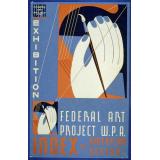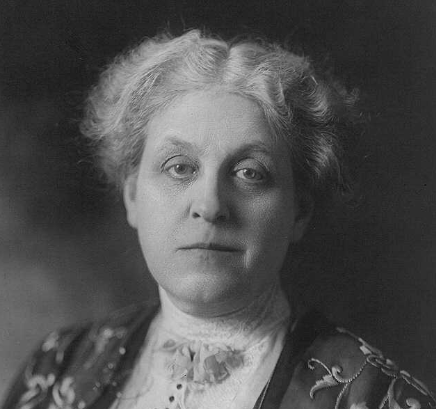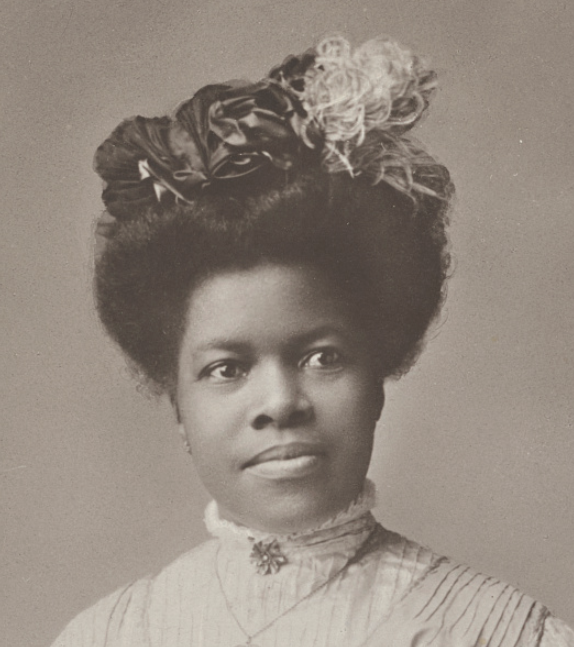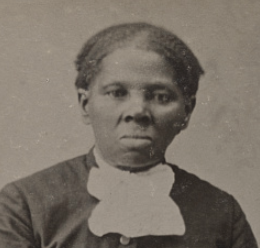I'm sharing this gift link to a book review from the New York Times today that has all sorts of connections to the Library of Congress. The book is titled The Playbook: A Story of Theater, Democracy, and the Making of a Culture War, by James Shapiro. It is partly about an antifascist play by the title of It Can't Happen Here that opened in 1936 during the week before Franklin D. Roosevelt won an election for a second term. The play was written as part of the Federal Theater Project, a jobs-for-artists division of Roosevelt's Depression-era Works Progress Administration.

https://www.loc.gov/resource/cph.3b48781/
The play became a touchpoint for all sorts of political shenanigans in a divided America. It led to culture wars and eventually the involvement of the House Un-American Activities Committee. Since the Shapiro book is just out, I have not read it yet, but it does sound pretty intriguing. Here, for example, is a paragraph from the review:
The book's most gripping and enraging chapter is about "Liberty Deferred," a daring play by two young Black playwrights, Abram Hill and John Silvera, that was watered down in development and not produced. Set partly "in 'the fabled land where all lynch victims go,' Lynchotopia," the play, whose targets include the racism of Northern whites, is described in riveting detail. Shapiro notes that it has never been staged.
The Library of Congress has all sorts of primary sources related to It Can't Happen Here. Here, for example, is a gallery view of a simple search on the title.
For general information on doing research at the Library, see Theater Research at the Library of Congress. It Can't Happen Here is on a poster right there on the intro page.
9 - 12 13+ Art/Music 6 - 8 English/Language Arts Social Studies/History Federal Theater Project Works Progress Administration Franklin D. Roosevelt Great Depression
Replies displayed by creation date
I actually just read about this play and the drama surrounding it and the Federal Theater Project, which was killed in 1939 by an act of Congress, in a November 2023 article from Smithsonian Magazine. I particularly liked the part that includes an exchange between Alabama Congressman Joe Starnes and Federal Theater Project Director Hallie Flanagan.
“You are quoting from this [Christopher] Marlowe,” he [Starnes] said at one point. “Is he a Communist?”
“He was the greatest dramatist … immediately preceding Shakespeare,” Flanagan explained. Starnes also inquired about the seditious inclinations of “Mr. Euripides.” After a few more such exchanges, the committee cut off Flanagan’s testimony, and she never got the chance to read a statement she had prepared. Admirers in the press defended her, with columnist Heywood Broun facetiously praising the acumen of Starnes, who “can detect a radical at a distance of more than three centuries.”
I also found the final paragraph very interesting.
"MGM bought the screen rights for It Can’t Happen Here from Lewis, lining up an all-star cast including James Stewart and Lionel Barrymore. However, after reportedly spending $200,000 (roughly $4 million today) on casting, sets and other expenses, the studio canceled the project. MGM gave various excuses, but most evidence suggests that it feared that going ahead with the film would cut off the lucrative market for all its movies in fascist Italy, Nazi Germany and Japan. Indeed, the German Film Chamber in Berlin denounced Lewis as “a full-blooded Communist.” MGM soon found a less threatening product in 1939 with Gone With the Wind. Hitler so loved it that he reportedly watched the film three times."
When I looked for the article online, I came across a woodcut on paper by the same name, "It Can't Happen Here," by Werner Drewes that is part of the Smithsonian American Art Museum collection.

WOW! That is quite a collection of production photos and scene notes. I was not familiar with the play or book. The Shapiro book I read in 2020 and refer to often is Shakespeare in a Divided America. (Penguin, 2020) It opens with an account various productions of Julius Ceasar including a production in Central Park in 2020 with a President elect Trump like portrayal of Caesar. Commotion and protests ensued.
Shapiro discusses how specific plays have been in or out of favor throughout our history The Tempest was treated as an anti-immigration play at times; John Wilkes Booth was influenced by Brutus' assassination of Caesar; the musical Kiss Me Kate based on The Taming of the Shrew has fallen out of favor in modern in the modern era. Shakespeare's many women who disguise themselves as men have been portrayed differently in different eras; Charlotte Cushman's sexuality was questioned when she played Romeo.
White theater owners temporarily shut down The African Company’s production of Richard III believing the Black theater was a threat to their own production of Richard III. (Photo: Aldridge as Aaron in Titus Andronicus) Shakespeare's Othello and The Merchant of Venice currently present challenges to actors and directors.
Inquiry Starter Set: Can a woman actor play Hamlet?
Ira Aldridge, America’s first internationally acclaimed Black actor
Testimonials
- I love that there is new info on the site daily!
- I had a wonderful time working with the Library of Congress and learning about all of the resources at my fingertips!
- The TPS Teachers Network has an equal exchange of ideas. You know it's not a place where you're being judged.
- My colleagues post incredibly fine resources and ideas....the caliber of the suggestions and resources make me feel that I take a lot from it. It's a takeaway. And I hope that I can give back as much as I get.
- Going into this school year, I have a fantastic new resource for my own instruction and to share with my colleagues!
- I am very glad that I discovered the TPS Teachers Network through RQI. Great resources can be hard to find out there on the internet!









 Shakespeare
Shakespeare




